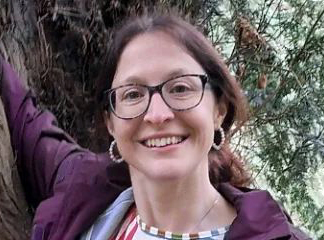A Self-Harm Strategy Design group was set up to ensure that people with lived experience would be involved in shaping the strategy
The Scottish Government is currently developing a dedicated self-harm strategy and action plan for Scotland. Lived experience of self-harm is at the centre of the strategy design.
Last year, a Self-Harm Strategy Design group was set up to ensure that people with lived experience would be involved in shaping the strategy from the very beginning.
A conscious decision was made to keep the Strategy Design Group small. This ensured that members of the group were able to build relationships with each other, be supported and have the opportunity to share their views.
The Design Group has support in a number of ways, including regular check-ins with the policy team and access to support from organisations including Penumbra and Samaritans. They also receive regular learning sessions delivered by leading academics and professionals in the mental health field, as well as financial support for their time and expenses.
The Design Group has been instrumental in helping the Scottish Government consider how it can engage with a wider and more diverse set of views, experiences, communities and settings. An initial period of engagement has just completed and further opportunities for members to feedback on the outline strategy will be available in the coming months.
We had a chat with Chloe and Sioned (pictured above, left to right), two members of the Design Group, to find out a bit more about it…
How did you get involved?
Sioned: “I was a volunteer with See Me and got involved through them. About half of the Strategy Design group is made up of people with lived experience. There are also other organisations in the group – they are people delivering services, for example there is someone who works for Childline, there’s a representative from Penumbra. In total, there are around 15 people in the group.”
Why did you want to be involved in the work of the Strategy Design group?
Chloe: “I had been referred to Penumbra’s self-harm support service in Dundee and was just coming to the end of that. Receiving that support was the first time I’d had contact with a peer worker.
Someone at Penumbra told me about the Strategy Design group and asked if I wanted to take part. For me, it’s a way of giving back as I had seen first-hand a different, positive side to mental health support services.”
Sioned: “As a person with lived experience, I have things to say and this sounded like a great opportunity to influence a really important piece of work.”
What would you like people to know about the Design Group?
Chloe: “The people who are involved really care about what they’re doing and you can see their passion for it. They do really want to get it right.”
Sioned: “I think it’s important for people to know that not everyone in the group has lived
experience. It’s not an extensive pool. We should be open and honest about the fact that it is a small Design group.”
What has worked well?
Chloe: “It’s been really good to be in a room with people that are so interested in the subject. It’s been nice to have everyone come together to share. We always have the opportunity to chat with the Scottish Government team as well. I enjoy the conversations in general. It’s just nice just to have the opportunity to have your voice heard, and it’s been good to have the opportunity to challenge as well.”
Sioned: “Figuring out what people need has been painstaking but very worthwhile. It’s been great to have the opportunity to be so directly involved and to engage directly with the Scottish Government team who inform the strategy. They seem keen to listen and get where we’re coming from.
Connecting with other people who have lived experience is great – it’s nice and reassuring to be doing this with people who have lived experience themselves. Interacting with people directly who have lived experience makes it all more powerful, I think.”
What are your hopes for the development of the strategy?
Sioned: “I hope that the things we have told them will end up in the strategy! Self-harm is different to suicide – it’s important for people to understand that. I hope that they keep the engagement targeted. Something needs to be done about the fact that some people seeking self-harm support are excluded from support because their case is considered as too serious or complex.”
Chloe: “I hope it does all the things it’s set out to do. A strategy is all well and good but it has to be followed by action. I hope the strategy addresses and fills the gaps that exist in mental health care. For example, some people with lived experience have had bad experiences with health professionals, where they have been given an inappropriate response for reaching out. That needs to change.”
Look out for the strategy, which is due to be published in summer 2023… Find out more about Penumbra’s Self-Harm Network Scotland service here.
Tina Koenig is communications lead - Self-Harm at Penumbra Mental Health.







